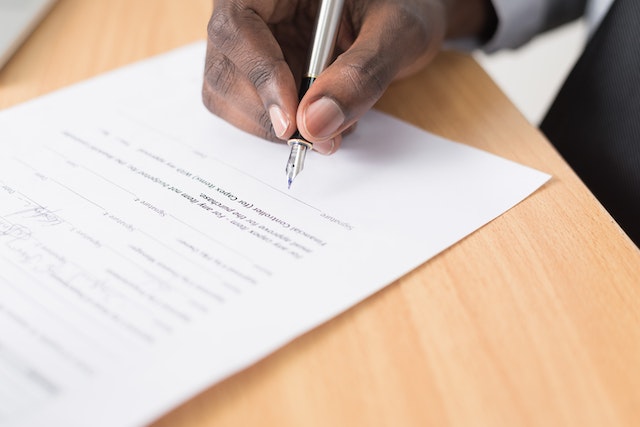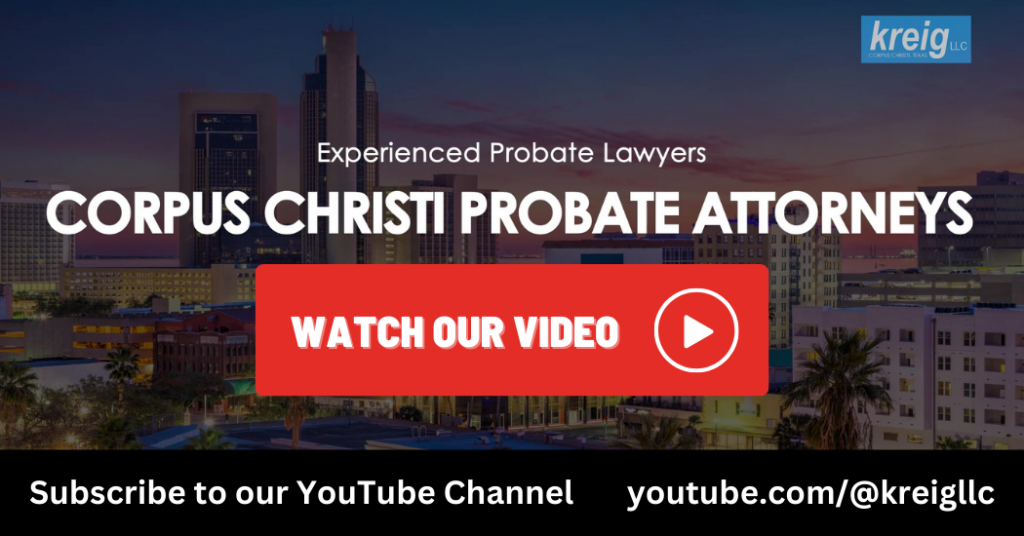Introduction: Making a Valid Last Will and Testament
For your will to be valid in Texas, you must have testamentary capacity. Testamentary capacity means that you understand the nature and extent of your property and that you’re aware of the natural objects of your affection. You must also be able to understand that you’re making a will, the purpose of a will, and the effect of making a will. You must be at least 18 years old to have testamentary capacity in Texas. But does a self-proved will relieve the proponent from proving that the testator had testamentary capacity? The recent case of In re Estate of Hogan, gives us some clarity.
Laws on Testamentary Capacity
In order to create a valid will in Texas, the testator must have what is called testamentary capacity. This means that they must be of sound mind and able to understand the nature and extent of their property, as well as the natural objects of their bounty. The testator must also be aware that they are making a will and the consequences of doing so.
There are a few ways to prove that someone had testamentary capacity at the time their will was created. One way is to have the will self-proved. This means that there are witnesses who can attest to the fact that the testator was of sound mind and knew what they were doing when they signed the will.
If a will is not self-proved, there may still be other ways to prove that the testator had testamentary capacity. For example, if there are witnesses who can testify about the testator’s state of mind at the time the will was created, or if there is evidence that the testator was receiving medical treatment for a condition that would have affected their ability to understand what they were doing, this may be enough to prove testamentary capacity.
Creating a Legal a Self-Proving Will? Requirements for Writing a Simple Will (Notarized, Affidavit)
A self-proved will is a will that has been signed by the testator (person making the will) and witnessed by two disinterested witnesses. A self-proved will is not required in Texas, but if you have one, it may save your loved ones time and money after your death.
If you don’t have a self-proved will, your loved ones will still be able to probate your will, but they may have to go through additional steps to prove your testamentary capacity. Testamentary capacity is the legal term for being of sound mind and body when you make your will.
If you want to create a self-proved will in Texas, you’ll need to sign the will in front of two witnesses and have the witnesses sign an affidavit attesting to your mental state at the time you signed the will. This affidavit is typically included with the will when it’s filed with the court.
After the will is signed, the witnesses and notary public must also sign an affidavit swearing to the testator’s mental capacity and that the will was executed freely and without duress.
Once the affidavit is complete, the will is considered self-proved and does not need to be probated. However, it is always recommended to have a self-proved will witnessed and notarized to avoid any potential issues with proving testamentary capacity later on.
Probate Case
In re Estate of Hogan, No. 11-20-00170-CV, 2022 Tex. App. LEXIS 3863 (Tex. App.—Eastland June 9, 2022, no pet. history).
Facts and Procedural History
Gary and Harold’s father created a new will before his death that left everything to Harold and nothing to Gary. Gary contested the will and the trial court ruled against him. He then appealed.
The court first looked at the mental capacity of the father at the time the will was executed. Although the will was self-proved, the court held that Gary had the burden of proving there was evidence that his father did not have testamentary capacity at the time his will was executed but that Harold still had the burden of persuasion to prove that his father did have testamentary capacity at the time the will was executed. The court denied both the legal and factual sufficiency challenge and cited evidence that the father’s medical records indicated that he had Alzheimer’s and was not competent a year after he executed the will. It held that this was inefficient evidence since it did not prove that he was incompetent at the time the will was made. It only proved that he later became incompetent after the will was made.
The court then looked into whether the father was under undue influence. The party contesting has the burden of proof to prove undue influence. However, if the contesting party brings evidence of a confidential or fiduciary relationship between the other party and the testator, there is a presumption of undue influence. The non-contesting party must provide evidence that contradicts the presumption. If contradicting evidence is provided, then the case proceeds as if the presumption never happened. Harold was his father’s caretaker which created the presumption that there was a fiduciary duty. However, he was able to meet his burden of producing evidence to prove there was no unfairness when the will was executed. Therefore, Gary once again had the burden of proving undue influence. The court held that Gary was not able to meet his burden. None of the evidence submitted proved that Harold had any fraudulent or malicious intent to control his father. The court then affirmed the trial court’s decision.
Main Considerations
Does a self-proved will relieve the proponent from proving that the testator had testamentary capacity?
No. The party bringing the will for probate still has the duty to prove that the testator had testamentary capacity at the time the will was executed, even if the will is self-proved.
Does being someone’s care taker and seeing them on a daily basis produce evidence that that person was under undue influence?
No. Just because someone sees someone on a weekly or daily basis and cares for them does not mean there is undue influence.
Takeaways
In re Estate of Hogan shows that the proponent still has to prove testamentary capacity with a self-proved will and that being someone’s care taker does not prove undue influence. Testamentary capacity is an important requirement for making a valid will in Texas. A self-proved will can be helpful in establishing testamentary capacity, but it is not required. If you have any questions about your testamentary capacity or whether a self-proved will is right for you, consult with an experienced estate planning attorney in Texas.
Do you need to hire an Experienced Probate Attorney to handle your estate?
When it comes to your estate, you want to make sure that everything is handled properly. This includes ensuring that your will is in order and that you have testamentary capacity. If you’re not sure what this means or how to prove it, then you need to hire an experienced probate attorney.
Your attorney will be able to help you understand the requirements for proving testamentary capacity in Texas. They can also help ensure that your will is self-proved, which can make the probate process much simpler. Don’t take chances with your estate – hire an experienced probate attorney today. (361) 502-4240.

Related questions
Does Texas allow a self-proving affidavit?
Yes, Texas does allow self-proving affidavits. This means that you can sign a self-proving affidavit in front of a notary public, which will serve as proof of your identity and testamentary capacity. However, it is important to note that not all states recognize self-proving affidavits. So, if you plan on moving to another state, you should check to see if the state you are moving to recognizes self-proving affidavits from Texas.
How do you prove lack of testamentary capacity?
If you want to prove that someone lacked the testamentary capacity to make a will, you’ll need to show that they didn’t understand the basic nature and purpose of a will. This can be tricky, since there’s no set list of things that someone must understand in order to have testamentary capacity. However, some of the factors that courts have considered include whether the person knew:
-That they were making a will
-The extent of their property and who would inherit it
-The natural objects of their bounty (usually their family members)
-The consequences of making or not making a will
To prove lack of capacity, you’ll need to submit evidence to the court showing that the person didn’t understand one or more of these things. This could be in the form of testimony from witnesses who saw the person around the time they made their will, or from experts who can attest to the person’s mental state at the time. It can be difficult to prove lack of capacity, so it’s important to consult with an experienced attorney before trying to contest a will on these grounds.
How to make a will in Texas?
A will is a legal document that details how you would like your assets to be distributed after you die. To make a valid will in Texas, you must be at least 18 years old and of sound mind. You must also sign your will in front of two witnesses, who must also sign the will.
If you want your will to be self-proved, meaning that it does not have to go through probate, you and your witnesses must also sign an affidavit in front of a notary public. This affidavit swears that you are of sound mind and that the will is your true wishes.
While not required, it is always best to consult with an attorney when drafting your will to ensure that it is legally binding and meets your specific needs.
Is a handwritten (holographic) will legal in Texas?
Yes, a handwritten (holographic) will is legal in Texas as long as it is signed and dated by the testator (the person making the will) and witnessed by two disinterested adults. The witnesses do not need to sign the holographic will, but they must be present when the testator signs it. A holographic will does not need to be notarized.
What are the requirements for a will to be valid?
To be valid, a will must be in writing, signed by the testator (the person making the will), and witnessed by two people who are not related to the testator. The witnesses must sign the will in the presence of the testator.
In addition, the testator must have what is called “testamentary capacity.” This means that the testator must understand that he or she is making a will, know what property he or she owns, and know who would be natural heirs. A self-proved will is one that includes an affidavit from the witnesses attesting to the testator’s testamentary capacity.
If a will does not meet these requirements, it may still be valid if it can be proven that the testator intended for it to be his or her last will and testament. This can be done through evidence such as handwritten changes to the will, or testimony from witnesses about what the testator said at the time he or she signed the will.




